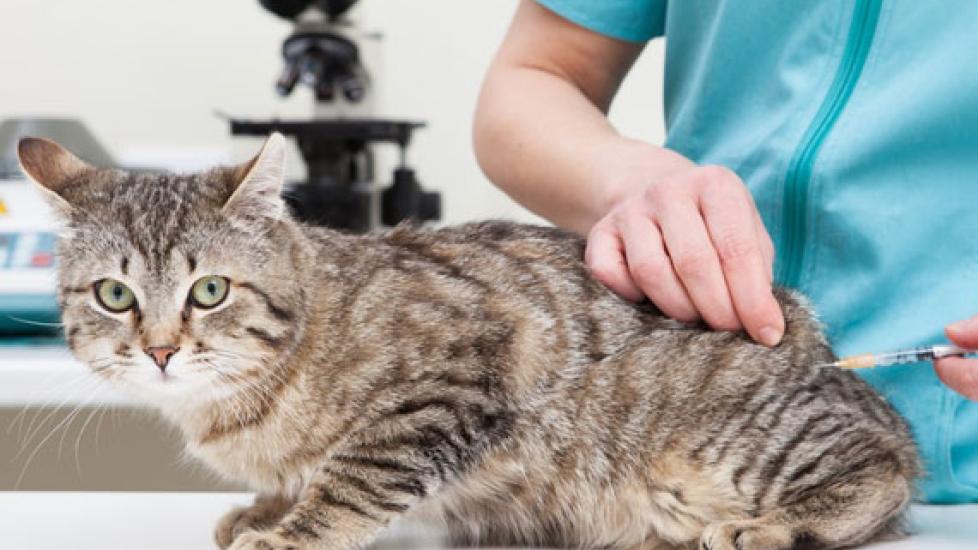FIV May Not Be As Bad As We Think It Is
One title leapt off the page as I was looking over the listing of sessions available at the recent American Veterinary Medical Association Convention — Feline Immunodeficiency Virus: Does it Really Cause Disease?
I have long counseled owners that Feline Immunodeficiency Virus (FIV) is not an immediate death sentence, but short of the cat succumbing to an unrelated illness or injury, I’ve always thought that the disease would eventually be fatal. Has something changed in our understanding of FIV? Intrigued, I marked that session as a “must see.”
The talk was given by Dr. Sue VandeWoude, Professor and Associate Dean for Research in the College of Veterinary Medicine and Biomedical Sciences at Colorado State University. Her laboratory studies FIV “in the context of an animal model for HIV/AIDS and as an agent useful for investigation of Ecology of Infectious Disease in charismatic large felid species such as pumas and bobcats.”
Recommended Pet Products
- Nutramax Proviable Probiotics & Prebiotics Digestive Health Supplement for Dogs & Cats, 160 count$89.98Chewy Price
- Fera Pets USDA Organic Pumpkin Plus Fiber Support for Dogs & Cats, 90 servings$34.95Chewy Price
- All Four Paws Comfy Cone E-Collar for Dogs & Cats, Black, Small$20.24Chewy Price
- Virbac Epi-Otic Advanced Ear Cleaner for Dogs & Cats, 4-fl oz bottle$12.34Chewy Price
I provided some basic FIV information in a post I wrote last year. What follows are some of the more interesting tidbits I picked up from Dr. VandeWoude, paraphrased from the convention notes she provided:
Between 1 and 25% of domestic cat populations are infected with one of 5 viral clades [variants of FIV].
FIV infection may be relatively asymptomatic in cats for many years, and some studies suggest it does not result in significant morbidity [illness] for infected animals. Nondomestic felid species, including puma (P. concolor) and lions (P. leo), are infected with distinct FIV strains that are not typically associated with overt disease.
FIV infects activated T cells [a type of cell important for immune function] and after acute symptoms (lymphadenopathy [swollen lymph nodes], fever, transient weight loss) typically enters a subclinical phase that lasts for months to years. Many cats live for years in the subacute phase with minimal noticeable disease, particularly when they live in indoor situations with limited exposure to other animals [although opportunistic infections and conditions such as gingivitis, lymphoma, and neurologic symptoms may arise].
FIV-positive animals in multi-cat households may transmit infection to uninfected cohorts, but the disease is not highly contagious.
After months to years of asymptomatic infection, for reasons that are not well understood, host immunologic control of FIV replication fails, resulting in increases in plasma viremia [virus in the blood stream], decreases in CD4 T cells, and increased susceptibility to infections and opportunistic diseases.
Highly virulent strains of FIV have been described, but are rare. These isolates can result in rapid immunological decline, high rate of cancer occurrence, and death within weeks to months following infection.
Dr. VandeWoude also talked about the FIV vaccine, mentioning that it not only provides immunity to the variants of FIV included in the vaccine but also offers “reasonable” cross-protection against the types that are not. However, many veterinarians have been reluctant to recommend the vaccine because it makes immunized individuals appear to have the disease on the most commonly used types of FIV tests.
Now that it looks like FIV infection is not the threat we once thought it was, use of this vaccine seems to make even less sense except in the most extreme of circumstances.

Dr. Jennifer Coates
Image: sematadesign / Shutterstock
You might also be interested in reading:




